19 Strange Sounds Your Dog Makes and the Meaning Behind Them
Beyond barking, our canine companions communicate with a fascinating range of noises, each telling its own story. Indeed, dogs are full of surprises, and the sounds they make are no exception. Learning to interpret these noises is not only an entertaining endeavor but also essential for ensuring your dog’s happiness and well-being. Veterinarians emphasize that every sound has a purpose, whether it’s a plea for attention or simply a sign of joy.
So, we take you on this journey to understand your dog better and on a deeper level to improve your shared experiences.
Barking

Credit: Wikimedia Commons
Let’s start with the most common sound we’re all aware of (and probably a little tired of, too) – Barking! However, it’s not just a simple “hello.” Dogs bark for various reasons, including excitement, alertness, or even boredom. The tone and frequency can indicate different emotions. For instance, a high-pitched bark often signals joy, while a deep bark might indicate a warning. Paying attention to context is key.
Yelping
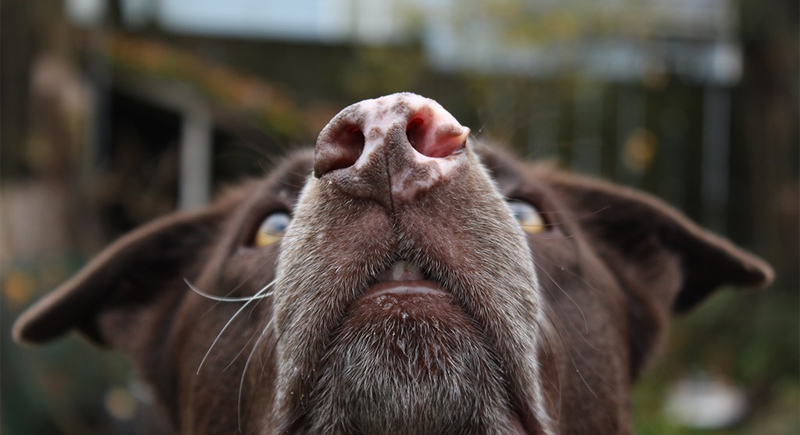
Credit: flickr
A sudden yelp from your dog can be alarming. This sharp and high-pitched sound usually indicates pain or surprise. If your dog yelps when you accidentally step on its paw, it’s a clear sign they’re in distress. It’s essential to check on them immediately and ensure they’re okay.
Howling
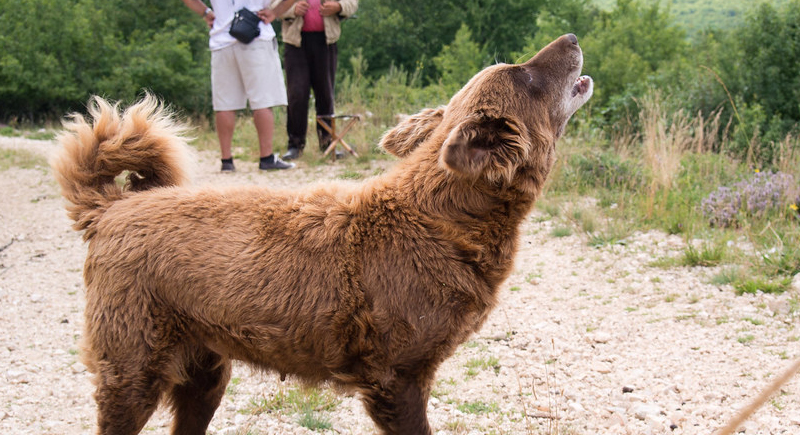
Credit: flickr
Howling is an ancient form of communication that traces back to dogs’ wolf ancestors. When your dog howls, it could be responding to certain sounds like sirens or music. Some breeds, such as Huskies and Beagles, are more prone to howling than others. It’s their way of connecting with their pack or expressing excitement.
Whining
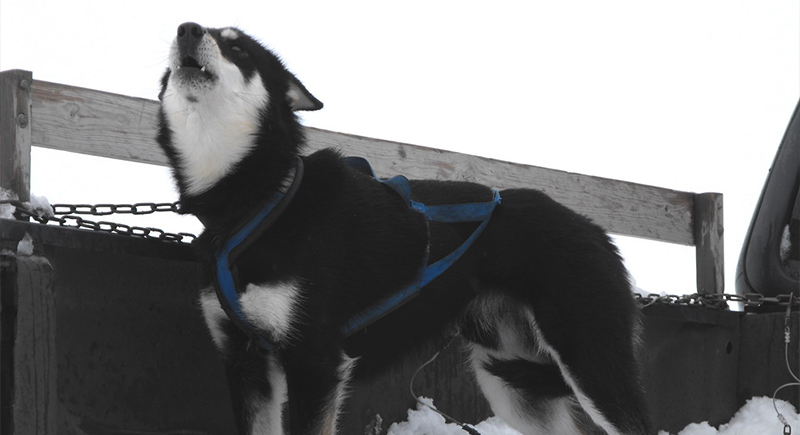
Credit: flickr
Whining is another common sound that can mean various things. Dogs often whine when they want attention, are anxious, or need to go outside. The pitch can vary, and that’s exactly what you need to pay attention to. A higher pitch may signal excitement or urgency, while a lower pitch might indicate discomfort. Understanding the context will help you respond appropriately.
Huffing

Credit: Wikimedia Commons
A series of breathy huffs through the mouth is often a sign your dog is happy or playful. Think of it as their version of a chuckle. If you hear huffing during playtime, it’s likely your pup is thoroughly enjoying themselves and inviting you to join the fun.
Snorting

Credit: flickr
Snorting is often an exhalation through the nose and can occur when dogs are sniffing around or exploring their environment. Some breeds with short noses, like pugs and bulldogs, are more susceptible to snorting due to their anatomy. It can also indicate that they’re trying to clear their nasal passages.
Growling
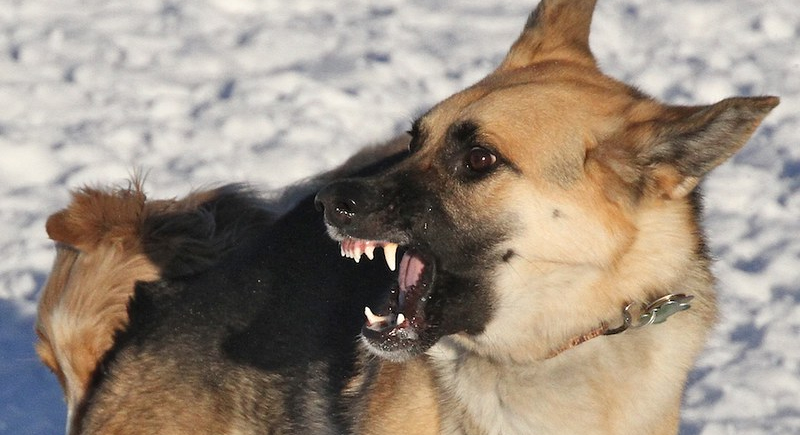
Credit: flickr
A growl is a warning sound that means “back off” or “give me space.” It’s often paired with stiff body language or a raised lip. While it may seem intimidating, growling is a healthy way for dogs to communicate boundaries. Respect the message and give your pup the room they need.
Moaning

Credit: flickr
If your dog is enjoying a belly rub or a cuddle session, you could hear them moaning softly. It’s an expression of relaxation and contentment. However, dogs can also moan when they’re bored or frustrated, so consider the context and their body language to understand the mood.
Panting
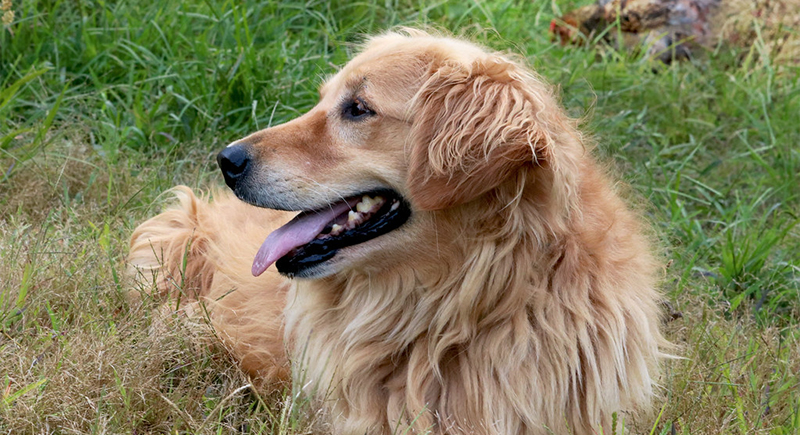
Credit: flickr
While it’s a natural response to heat or exercise, panting can also indicate stress or excitement. This means that panting may not be just about cooling off. If your dog’s panting seems excessive or paired with other symptoms, it might be a sign of pain or illness, so monitor closely.
Grunting
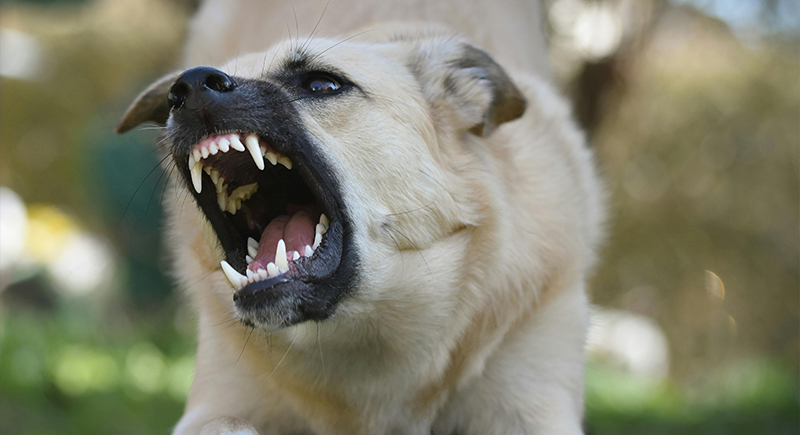
Credit: pexel
Dogs may grunt when they’re settling into a cozy spot or feeling a bit stiff after a long day of play. Short, low-pitched grunts are usually harmless, but if your dog seems uncomfortable, it might be worth checking for soreness or other issues.
Purring

Credit: flickr
Believe it or not, some dogs can purr! This vibrating sound often happens when they’re deeply relaxed and happy, like during a petting session. Breeds like Rottweilers are even known for their “Rottie rumble,” a happy noise that’s easy to mistake for a growl.
Huff-Sneezing

Credit: flickr
Sometimes, dogs combine a huff with a sneeze, creating an exaggerated exhale that sounds like a mix of a laugh and a snort. This usually happens during play as a sign of excitement or to reset their energy. It’s harmless and often pretty adorable.
Reverse Sneezing

Credit: flickr
If your dog suddenly inhales sharply, almost like a gasp, they might be experiencing a reverse sneeze. It’s more common in smaller breeds and usually happens when something irritates their nasal passages. While it can sound alarming, it’s typically harmless and resolves quickly.
Yawning
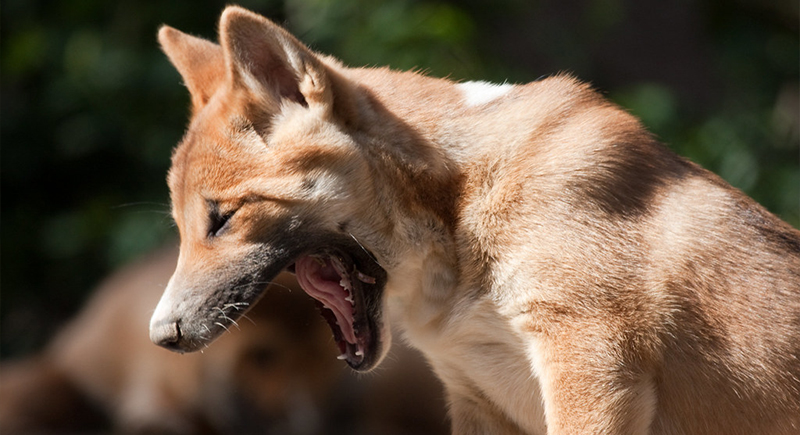
Credit: flickr
A yawn might mean your dog is tired, but it’s also a way to release tension. If your dog yawns during stressful situations, like a visit to the vet, it’s their way of calming themselves. However, yawning is also a reaction to discomfort and anxiety. The only way to find out what your dog is feeling is to pay attention and monitor.
Howl-Singing
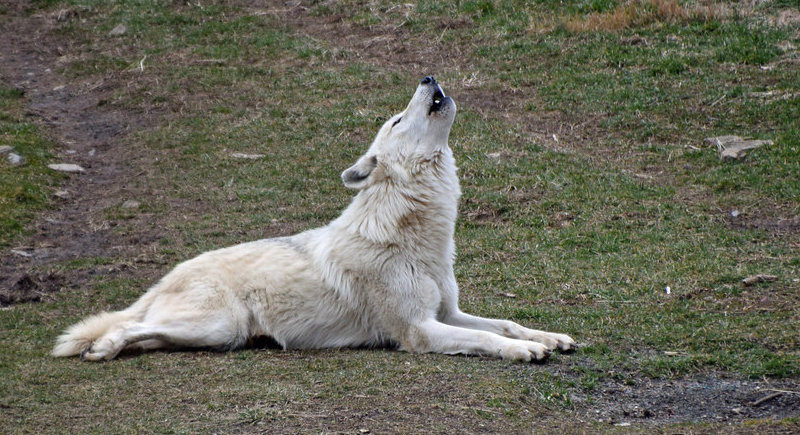
Credit: flickr
Howl singing is quite common in breeds with strong vocal instincts, like malamutes, hounds, and huskies. These dogs tend to take howling to the next level, mimicking sounds like music or sirens. This isn’t just an unusual habit but a way for your dog to join the “chorus.”
High-Pitched Squeaking
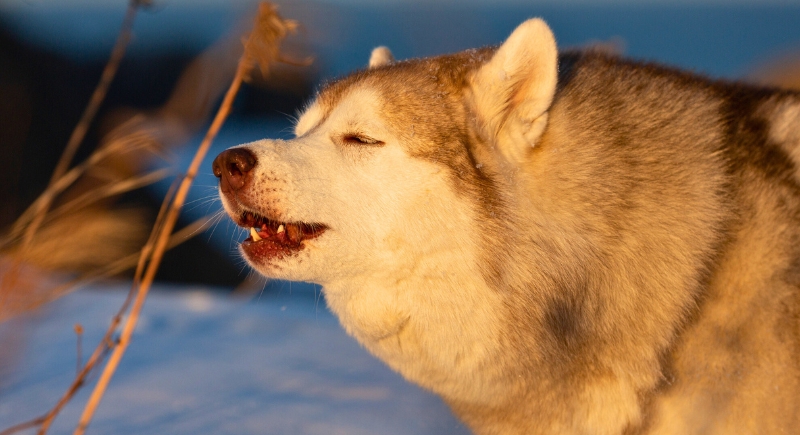
redit: iStockphoto
Now let’s talk about that high-pitched squeaking that dogs do, which sounds like someone stepped on a rubber duck. This isn’t just random noise—it usually means your pup is feeling anxious, excited, or trying to get your attention. Think of it as their version of whining combined with Morse code. It often shows up during playtime or when they’re craving some extra love.
Whimpering During Sleep

Credit: pixabay
Ever hear your dog whimpering while asleep and wonder if they’re having a canine nightmare? Don’t panic—it’s usually harmless. Much like humans, dogs dream during REM sleep, and those soft whimpers or twitchy paws likely mean they’re deep in dreamland, possibly chasing squirrels or revisiting that one time they met the mailman. Unless the whimpering seems distressed or constant, it’s nothing to worry about.
Chattering Teeth

Credit: Getty Images
When your dog’s teeth chatter, it may look funny, but it’s often a sign of emotional distress. This sound can appear when a dog is thrilled, nervous, or picking up a scent. In cooler weather, it may simply signal they’re cold. Pay attention to timing and context to understand the reason behind the chatter.
Excessive Barking at Night
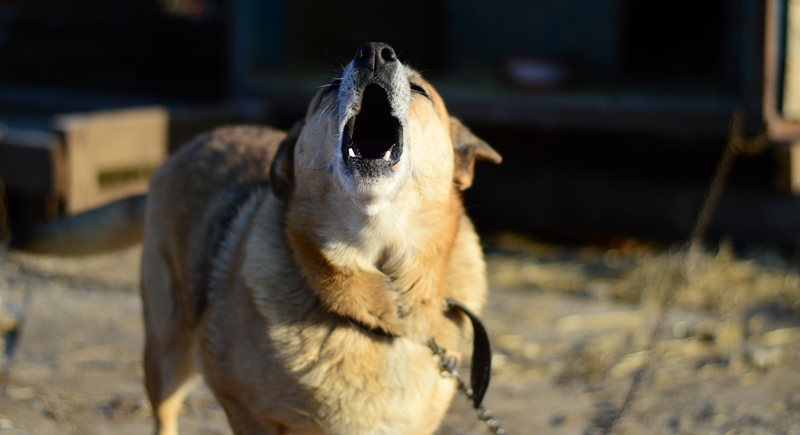
Credit: iStockphoto
If your dog barks excessively after dark, instincts may be at play. Dogs are naturally alert to unfamiliar noises and movements. Loneliness or unused energy can also trigger the behavior. Building a bedtime routine, offering extra exercise, or adding soft background noise can help calm them and encourage better sleep.